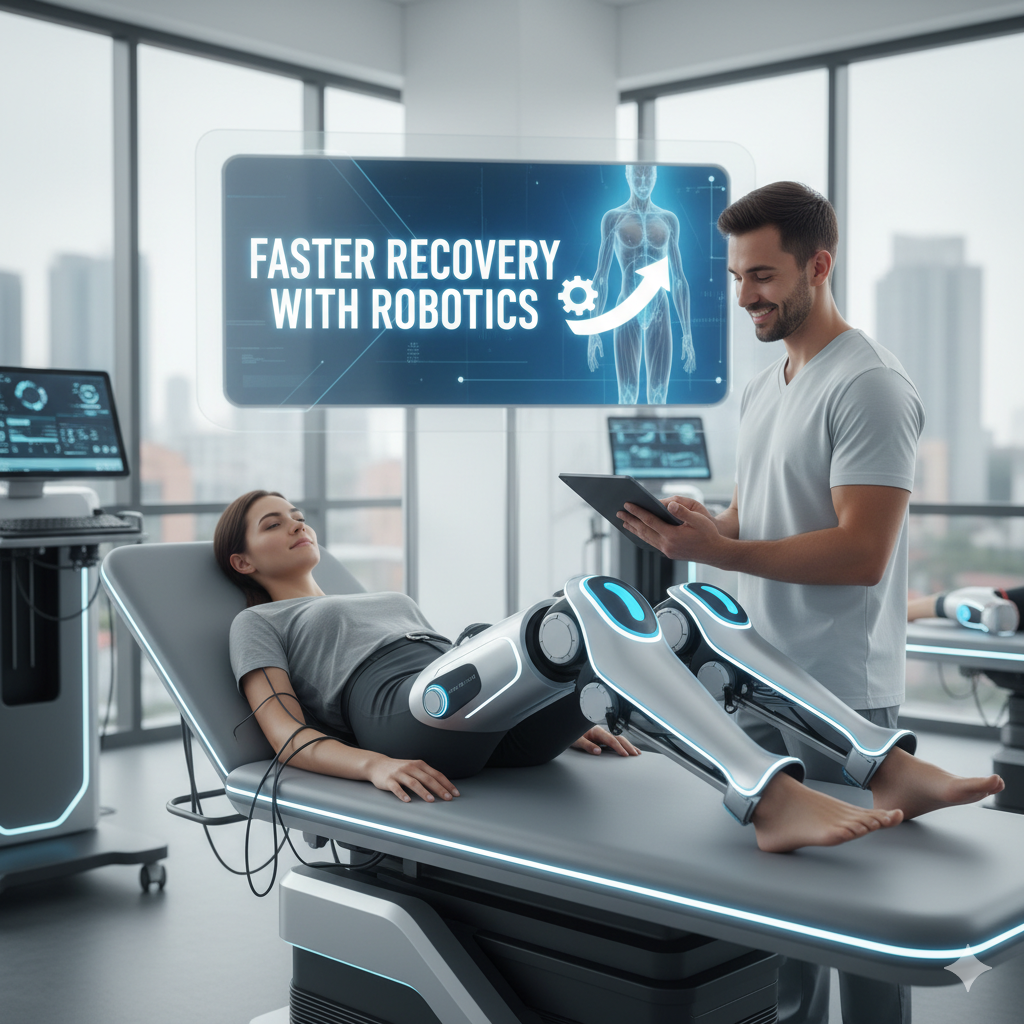Robotic-assisted knee replacement surgery has been gaining attention for its potential to enhance recovery times compared to traditional methods. Recent studies provide insights into how this technology may benefit patients:
Accelerated Return to Daily Activities
A study published in the Journal of Orthopaedic Surgery and Research examined patients who underwent robotic-arm–assisted total knee arthroplasty (RATKA). The findings revealed that:PubMed Central+1Cleveland Clinic+1
- 96% of patients were discharged home with self-care or health aid after a mean hospital stay of 1.2 ± 0.6 days.
- 100% of patients returned to driving after a mean of 29 days (range, 4 to 62 days).
- 90% returned to their preoperative level of work after a mean of 46 days (range, 2 to 96 days), with 38% resuming work within 3 weeks. PubMed Central
Reduced Hospital Stay and Complications
Research from University College London indicates that patients undergoing robot-assisted surgery experienced:UCL
- An average hospital stay of 8 days, compared to 10 days for those who had open surgery—a 20% reduction.
- A lower readmission rate within 90 days: 21% for the robot-assisted group versus 32% for the open surgery group. Wikipedia+2UCL+2SciTech Daily+2
Improved Postoperative Outcomes
A study comparing robotic and manual total knee arthroplasty found that robotic-assisted procedures were associated with:PubMed Central
- Reduced pain and faster recovery in the immediate postoperative period.
- Improved patient-reported outcome measures (PROMs) and higher patient satisfaction. PubMed Central+1Wikipedia+1
Lower Risk of Complications
Data from UT Southwestern Medical Center showed that patients who underwent robotic total knee arthroplasty had:UT Southwestern
- Hospital stays nearly half a day shorter than those who had conventional surgery.
- Significantly lower rates of complications, including infections, excessive blood loss, and mechanical issues with the prosthetic. UT Southwestern+1usmdarlington.com+1
Considerations and Limitations
While robotic-assisted knee replacement offers promising benefits, it’s essential to consider:
- Cost: Robotic procedures can be more expensive than traditional methods.
- Availability: Access to robotic surgery may be limited based on geographic location and facility resources.
- Surgeon Experience: Outcomes can vary depending on the surgeon’s proficiency with robotic systems.
Conclusion
Emerging evidence suggests that robotic-assisted knee replacement surgery may lead to faster recovery, reduced hospital stays, and lower complication rates compared to traditional methods. However, individual outcomes can vary, and it’s crucial to consult with an orthopedic specialist to determine the most appropriate surgical approach for your specific needs.

